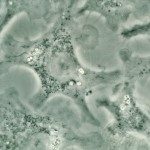Link to Pubmed [PMID] – 17880845
Curr Infect Dis Rep 2007 Sep;9(5):358-65
During sepsis, the plasma levels of numerous inflammatory markers are enhanced. Some of these markers are the mediators responsible for the syndromes observed during sepsis as well as for organ dysfunction and eventually death. Their role has been demonstrated in experimental models that employed either transgenic and gene-targeted animals or the use of neutralizing agents. Accordingly, anaphylatoxins generated after complement system activation, factors of coagulation and fibrinolysis, proinflammatory cytokines, chemokines, proteases, lipid mediators, nitric oxide, and cell markers of stress (eg, high mobility group box-1) have been shown to contribute to the deleterious events observed during sepsis. On the other hand, the counter-regulation of the inflammatory process, which involves mediators such as anti-inflammatory cytokines and some neuromediators, can jeopardize the immune status of the host and render the patients more sensitive to nosocomial infections.

